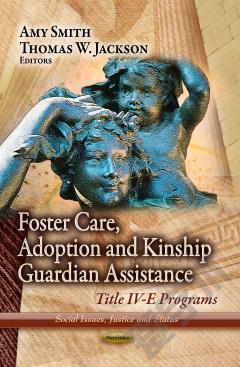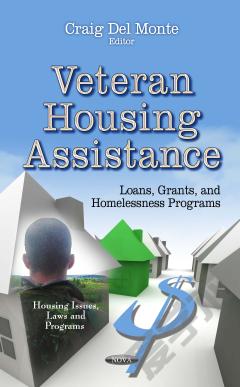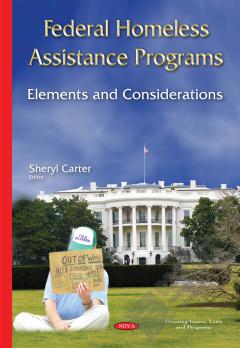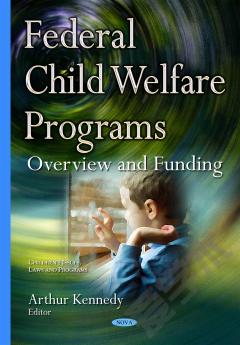Foster Care, Adoption and Kinship Guardian Assistance: Title IV-E Programs
Foster care is a temporary living arrangement for children who cannot remain safely in their own homes. For nearly every child who enters foster care, a first goal of the child welfare agency is to ensure necessary services are identified, and provided, so that the child can quickly and safely return to his or her parents. Most children who leave foster care do so to be reunited with parents or other family members. For some children, however, this is not possible. In those cases, the child welfare agency must work to find a new permanent home for these children and this may be accomplished through adoption or legal guardianship. This book examines Title IV-E of the Social Security Act, which declares that states, territories, and tribes are entitled to claim partial federal reimbursement for the cost of providing foster care, adoption assistance, and kinship guardianship assistance to children who meet federal eligibility criteria. The Title IV-E program, provides support for monthly payments on behalf of eligible children, as well as funds for related case management activities, training, data collection, and other costs of program administration.
{{comment.content}}








 京公网安备 11010802027623号
京公网安备 11010802027623号